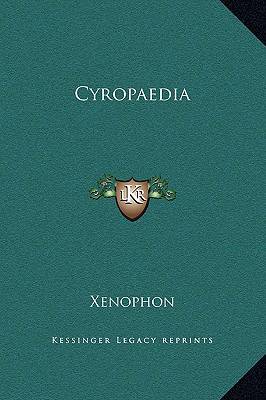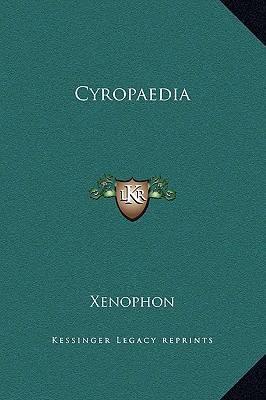
- Afhalen na 1 uur in een winkel met voorraad
- Gratis thuislevering in België vanaf € 30
- Ruim aanbod met 7 miljoen producten
- Afhalen na 1 uur in een winkel met voorraad
- Gratis thuislevering in België vanaf € 30
- Ruim aanbod met 7 miljoen producten
Zoeken
Omschrijving
Cyropaedia is a historical and biographical work written by the ancient Greek writer Xenophon in the 4th century BCE. The book is a fictionalized account of the life of Cyrus the Great, the founder of the Achaemenid Empire, and portrays him as an ideal ruler and military strategist. The work is divided into eight books and covers Cyrus' childhood, his rise to power, his military campaigns, and his death. The book is not a traditional biography, but rather a philosophical treatise on leadership, governance, and morality. Xenophon uses Cyrus' life as a vehicle to explore these themes and to present his own ideas on the ideal ruler. He emphasizes the importance of virtue, justice, and wisdom in a leader, and argues that a good ruler must be able to balance the interests of the state with the needs of its citizens. Cyropaedia is also notable for its depiction of Persian culture and society. Xenophon portrays the Persians as a sophisticated and cultured people, with a complex system of government and a deep respect for tradition and hierarchy. He contrasts this with the Greeks, whom he portrays as more individualistic and less organized. Overall, Cyropaedia is a fascinating work that offers insights into ancient Greek and Persian culture, as well as into the ideals of leadership and governance that were valued in the ancient world.""So you think, Cyrus, that the beauty of any human creature can compel a man to do wrong against his will? Surely if that were the nature of beauty, all men would feel its force alike. [10] See how fire burns all men equally; it is the nature of it so to do; but these flowers of beauty, one man loves them, and another loves them not, nor does every man love the same. For love is voluntary, and each man loves what he chooses to love.This scarce antiquarian book is a facsimile reprint of the old original and may contain some imperfections such as library marks and notations. Because we believe this work is culturally important, we have made it available as part of our commitment for protecting, preserving, and promoting the world's literature in affordable, high quality, modern editions, that are true to their original work.
Specificaties
Betrokkenen
- Auteur(s):
- Uitgeverij:
Inhoud
- Aantal bladzijden:
- 254
- Taal:
- Engels
Eigenschappen
- Productcode (EAN):
- 9781169303171
- Verschijningsdatum:
- 10/09/2010
- Uitvoering:
- Hardcover
- Formaat:
- Genaaid
- Afmetingen:
- 178 mm x 254 mm
- Gewicht:
- 657 g

Alleen bij Standaard Boekhandel
+ 119 punten op je klantenkaart van Standaard Boekhandel
Beoordelingen
We publiceren alleen reviews die voldoen aan de voorwaarden voor reviews. Bekijk onze voorwaarden voor reviews.











